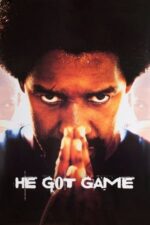The Bitter Edge: Exploring Anger on Film
Isn't it fascinating how anger manifests in film? Not just as shouting and red faces (though those have their place!), but as a simmering undercurrent, a coiled spring ready to unleash, or even a quiet, devastating resolve. It’s a powerful emotion, of course – the engine behind so many stories – but what makes for truly compelling cinematic anger isn't just its presence, it's how it shapes characters and drives narratives.
We often think of anger as purely negative, destructive. And sometimes it is! Think about Skunk, a film that lays bare the brutal consequences of unchecked rage born from trauma. It’s not comfortable viewing, but it forces you to confront the cycle of violence and the devastating impact on those caught within it. It's a stark reminder that anger, when fueled by neglect and abuse, can become a self-fulfilling prophecy.
But what about righteous anger? The kind that sparks action, that fuels a fight for justice? The G is a brilliant example of this. It’s not just about revenge; it’s about an elderly woman reclaiming her dignity and fighting back against those who would exploit her vulnerability. There's something incredibly satisfying in watching her – alongside her granddaughter – outwit the system, proving that age doesn’t diminish strength or resolve. It reminds me a little of Grumpy Old Men, but with significantly higher stakes!
Then there are films where anger is more internalized, a quiet desperation masked by stoicism. Life After Fighting showcases this beautifully. Alex Faulkner isn't screaming and ranting; his anger simmers beneath the surface, driving him to protect those he cares about, even at great personal risk. It’s that contained fury, that unwavering determination, that makes him so compelling. It’s a different kind of power than the explosive rage we see in Skunk, but it's equally potent.
And sometimes, anger is born from grief and loss – a desperate clinging to what was. The Paradise of Thorns portrays this with such heartbreaking tenderness. It’s not about lashing out; it’s about a man fighting for the memory of his love, battling against those who would erase her existence. It's a quiet, persistent anger that speaks volumes about the enduring power of love and loss.
Finally, consider Tin Soldier. The anger there is complex – a blend of betrayal, grief, and a desire for retribution. It’s not simply about revenge; it’s about confronting a system that has failed those who served it. It's a film that asks us to examine the cost of conflict and the lingering wounds it leaves behind.
Ultimately, these films – each in their own way – demonstrate that anger isn't just an emotion; it's a force. A destructive one, yes, but also a catalyst for change, a source of strength, and a testament to the enduring resilience of the human spirit. What resonates most with you? The raw fury of Skunk, the righteous indignation of The G, or perhaps the quiet determination of Life After Fighting? I'd love to hear your thoughts!






































